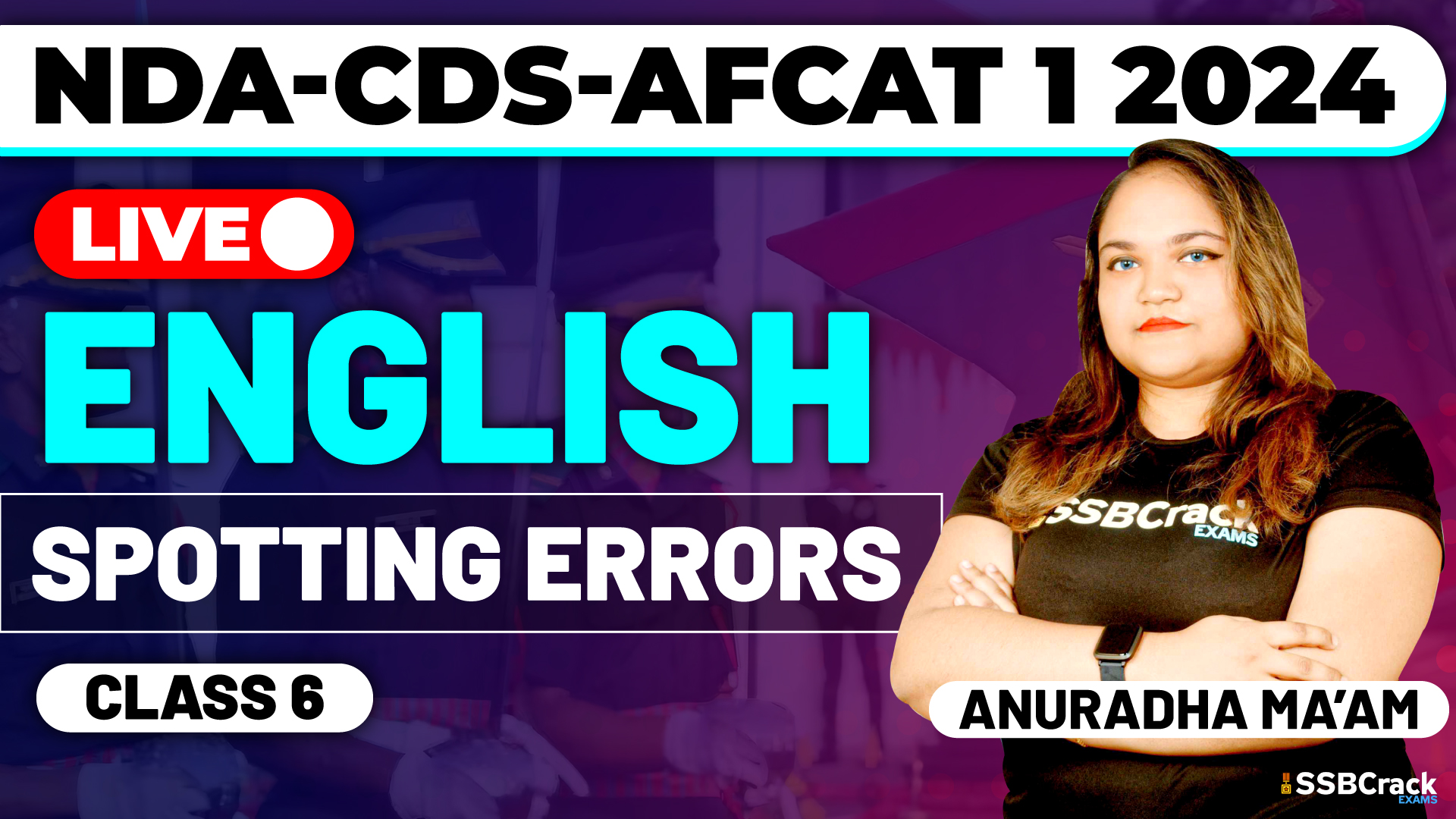In the realm of competitive exams such as the National Defence Academy (NDA), Air Force Common Admission Test (AFCAT), and Combined Defence Services (CDS), the English language section holds a significant place. Among the various topics tested, “Spotting Errors” stands as the ultimate challenge, demanding not just an understanding of grammar but a mastery of it. Adjectives, often underestimated, are essential components of this challenge. In this article, we will delve into the important rules of adjectives that can be your key to success in the Spotting Errors section.
1. Understanding the Role of Adjectives
Adjectives are words used to describe or modify nouns (people, places, things, or ideas). They provide additional information about the noun and make your sentences more descriptive and precise.
2. Agreement in Number and Gender
- Adjectives should agree in number and gender with the noun they modify. For example, in the phrase “beautiful flowers,” “beautiful” agrees with the plural noun “flowers.”
3. Proper Placement of Adjectives
- In English, adjectives generally come before the noun they modify. For example, “red car” or “tall tree.” However, some adjectives, like “postpositive” adjectives, come after the noun, such as “attorney general” or “heir apparent.”
4. Comparative and Superlative Forms
- Adjectives have comparative and superlative forms to compare two or more nouns. For example, “fast” (positive), “faster” (comparative), and “fastest” (superlative).
5. Proper Use of Articles
- Articles, such as “a,” “an,” and “the,” are often used with adjectives to specify or limit the noun. Understanding when and how to use these articles is crucial for accurate adjective placement.
6. Proper Use of Demonstrative Adjectives
- Demonstrative adjectives like “this,” “that,” “these,” and “those” are used to point out specific nouns. Ensure the correct demonstrative adjective is used with the noun for clarity.
7. Avoiding Redundancy
- Be cautious of redundant adjectives. Using multiple adjectives that convey the same meaning can make your sentences wordy and less effective. Choose the most appropriate one.
8. Adjectives vs. Adverbs
- Be aware of the difference between adjectives and adverbs. Adjectives modify nouns, while adverbs modify verbs, adjectives, or other adverbs. Using the correct one is essential for grammatical accuracy.
9. Non-gradable Adjectives
- Some adjectives are non-gradable, meaning they cannot be compared using comparative and superlative forms. Examples include “unique,” “perfect,” and “dead.” Avoid incorrect comparisons with these adjectives.
10. Understanding Degrees of Adjectives
- Adjectives can express different degrees, such as positive (good), comparative (better), and superlative (best). Ensure that adjectives are used appropriately to convey the intended degree.
Conclusion
Adjectives are the unsung heroes of descriptive language, adding depth and clarity to our expressions. In the context of competitive exams like NDA, AFCAT, and CDS, mastering the rules of adjectives is not just about grammar; it’s about enhancing your ability to spot errors and communicate effectively. By understanding and applying these rules, you’ll not only excel in the Spotting Errors section but also improve your overall English language proficiency. Adjectives are more than just descriptive words; they are your allies in the quest for linguistic precision and success in your exams.







